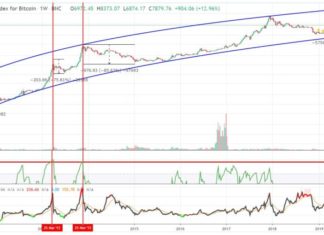[ad_1]
The Supreme Court of British Columbia has issued a major ruling in a case stemming from a dispute over ethereum (ETH) tokens mistakenly sent to an initial coin offering (ICO) investor, and it could have implications for cryptocurrency users or exchanges outside of the litigants involved in the case.
The ruling, which was issued by Justice Ronald A. Skolrood on Sept. 12, authorized Singapore-based blockchain startup Copytrack to track down and reclaim approximately 530 ETH that it had mistakenly sent to an investor who participated in its initial coin offering (ICO). At the time, those 530 ETH were valued at approximately $391,000 (CAD$495,000), though they have since declined in value to about $121,000 — still a large sum.
According to documents published by the court, cryptocurrency investor Brian Wall participated in the Copytrack ICO, subscribing to purchase 530 CPY tokens. At the conclusion of the ICO, Copytrack sent Wall 530 tokens, but, much to the company’s chagrin, they sent him ETH rather than CPY — a token that, at a present value of about five cents, is worth a fraction of ETH.
Wall, who initially refused to return the 530 ETH to Copytrack, later agreed to comply. However, he said that, before he could send the funds back to the company, a hacker unlawfully accessed his ethereum wallet and stole the funds. Further complicating the legal matter, Wall died before the case could be resolved.
ICO hazards: Someone bought 530 Copytrack tokens (~CDN$780). Copytrack mistakenly sent 530 ETH (~CDN$495,000). They sued the recipient to get the ETH back … but the recipient has since died. https://t.co/TYBY2Gt7bd Court orders those *particular* ETH be returned to Copytrack.
— David Gerard (@davidgerard) October 8, 2018
Noting that the case raised several legal questions, including whether the ether tokens should be classified as “goods” or something else, Justice Skolrood nevertheless maintained that the crux of the matter is that the tokens belong to Copytrack — uncensorable transactions or not.
He said:
“Further, regardless of the characterization of the Ether Tokens, it is undisputed that they were the property of Copytrack, they were sent to Wall in error, they were not returned when demand was made and Wall has no proprietary claim to them. While the evidence of what has happened to the Ether Tokens since is somewhat murky, this does not detract from the point that they should rightfully be returned to Copytrack.”
Consequently, Justice Skolrood issued the following ruling:
“An order that Copytrack be entitled to trace and recover the 529.8273791 Ether Tokens received by Wall from Copytrack on 15 February 2018 in whatsoever hands those Ether Tokens may currently be held.”
Note that the ruling does not merely state that Copytrack is the rightful owner of the misplaced ETH and that current holder — whether Wall’s estate or a hacker — must pay the company back the 530 ETH. It would seem to imply that Copytrack is entitled to those specific tokens, no matter who is holding them or whether they received them through legitimate for illegitimate means. This could raise some other thorny issues, particularly if those funds have been sent to a cryptocurrency exchange and unknowingly distributed to another trader’s external wallet.
Read the full document below:
Copytrack Pte Ltd. v. Wall by CCN on Scribd
Featured Image from Shutterstock
Follow us on Telegram or subscribe to our newsletter here.
• Join CCN’s crypto community for $9.99 per month, click here.
• Want exclusive analysis and crypto insights from Hacked.com? Click here.
• Open Positions at CCN: Full Time and Part Time Journalists Wanted.
Advertisement
[ad_2]
Source link





